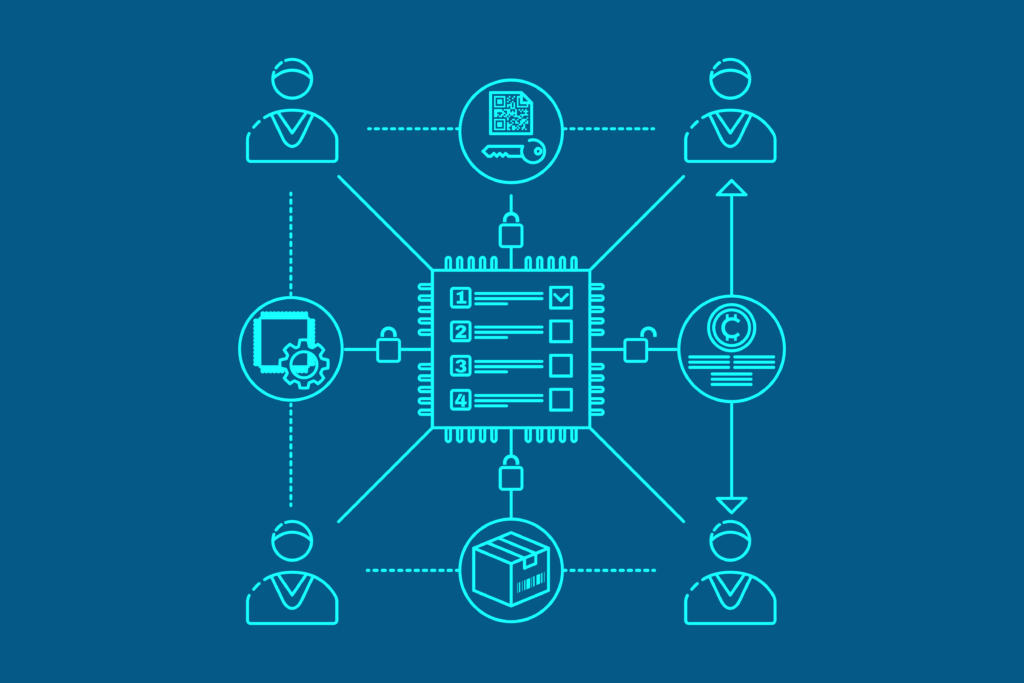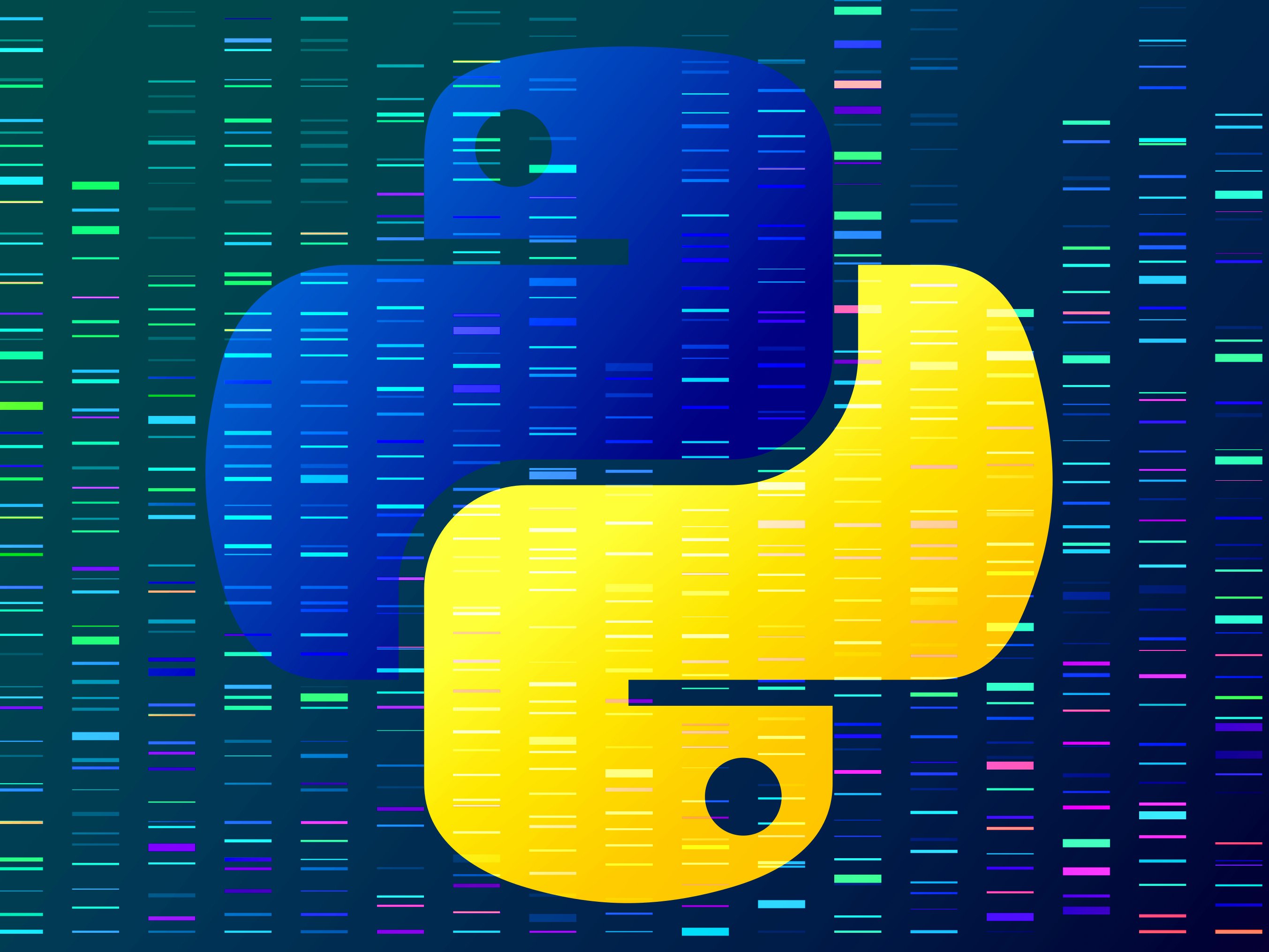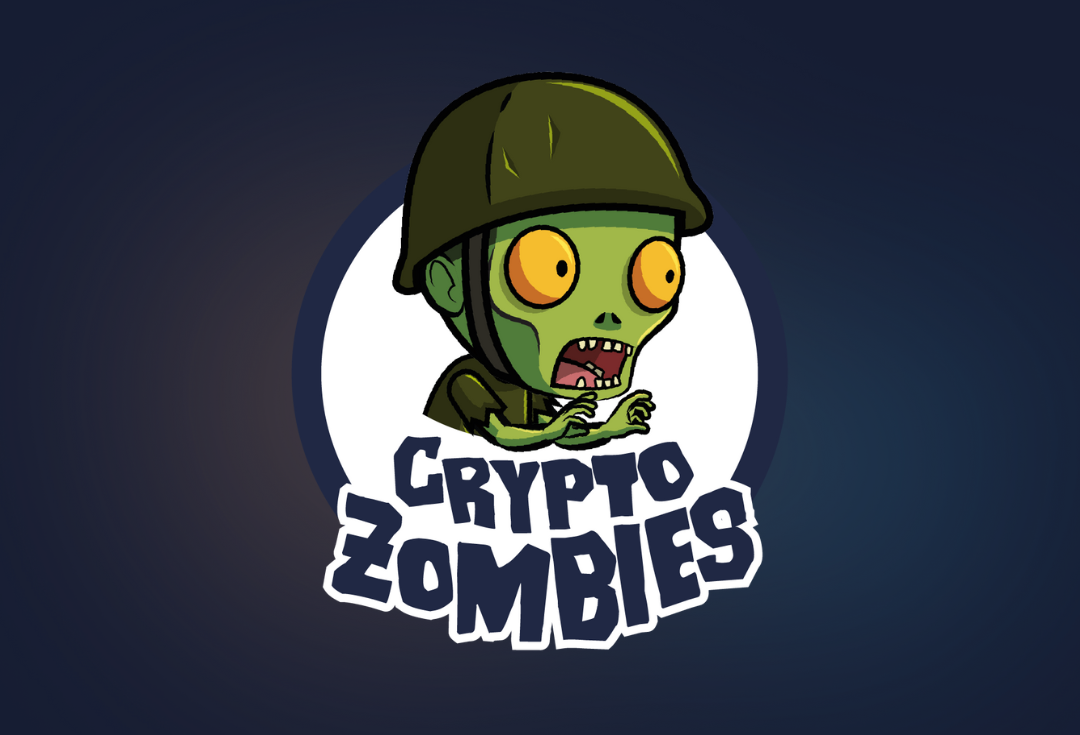Programming Skills For Cryptocurrencies - Building A Strong Foundation
Cryptocurrency has emerged as a transformative force in the world of finance and technology. As this digital revolution continues to gain momentum, individuals and businesses alike are keen to harness its potential. One of the key prerequisites for success in the industry is a solid foundation in programming skills for cryptocurrencies. In this article, we will explore the essential programming skills needed to thrive in the cryptocurrency sector.
Who Is A Blockchain Developer?
In the ever-evolving landscape of technology, the role of a blockchain developer has emerged as a pivotal force, shaping the future of decentralized digital systems. But who is a blockchain developer, and what exactly do they do?
A Catalyst For Blockchain-Powered Innovation
At its core, a blockchain developer is a visionary technologist who specializes in creating applications that harness the power of blockchain technology. Their role is multifaceted, encompassing a diverse range of responsibilities aimed at unlocking the potential of this revolutionary technology.
Architecting The Digital Ledger
Blockchain, often referred to as a decentralized ledger, is the bedrock upon which cryptocurrencies and various decentralized applications(DApps) are built. Blockchain developers are the architects of this digital ledger. They design, develop, and enhance the algorithms that underpin the blockchain protocol architecture. These algorithms are the building blocks of trust and security in a decentralized world.
Navigating The Blockchain Protocol
One of the primary domains of a blockchain developer is working with the Blockchain Protocol. This protocol functions as the internet for blockchain-powered products, akin to the standard Internet Protocol (IP) that drives the conventional internet. Blockchain developers are well-versed in the intricacies of this protocol, enabling them to create applications that seamlessly interact with blockchain networks.
Crafting Smart Contracts
Smart contracts, the self-executing agreements with terms encoded in code, are the backbone of blockchain-powered systems. Crafting these contracts is a core responsibility of blockchain developers. They design and write smart contracts that operate on blockchain nodes, automating trust and executing predefined actions without the need for intermediaries. Smart contracts enable everything from secure financial transactions to the governance of decentralized organizations.
Ensuring Security And Integrity
The decentralized nature of blockchain networks doesn't exempt them from security concerns. In fact, it intensifies the need for robust security measures. Blockchain developers are the guardians of digital fortresses. They employ their expertise to identify vulnerabilities, implement encryption techniques, and adhere to secure coding practices. By doing so, they ensure the safety and integrity of blockchain systems in an increasingly hostile cyber landscape.
Fostering Innovation Through DApps
Decentralized applications, or DApps, represent the forefront of blockchain innovation. Blockchain developers are at the forefront of this revolution, conceiving, developing, and refining DApps across various industries. These applications transcend conventional boundaries, bringing transparency, security, and efficiency to sectors like finance, healthcare, supply chain management, and more.
Why Programming Skills Matter
Cryptocurrencies are built on blockchain technology, a decentralized and secure ledger system that relies heavily on programming and cryptography. This intersection of technology and finance has created a unique industry where programming skills play a pivotal role. Having the right programming skills can provide you with a competitive advantage in several ways:
Developing And Maintaining Cryptocurrencies
The creation and maintenance of cryptocurrencies are at the heart of the blockchain revolution. To embark on this journey or contribute to an existing project, a deep proficiency in specific programming languages is crucial. Languages such as C++, Python, Solidity, and JavaScript are the tools of the trade in blockchain development. These languages serve as the building blocks for designing and implementing the underlying codebase of a cryptocurrency. Without a solid foundation in these languages, the development and enhancement of blockchain-based digital assets become a formidable challenge.
Smart Contract Development
Smart contracts, the self-executing agreements with terms directly encoded in software, are the backbone of decentralized applications (DApps) and the burgeoning field of decentralized finance (DeFi). Ethereum's Solidity language is the go-to choice for smart contract development.
Understanding this language and the principles of smart contract programming is not just beneficial but indispensable for those aspiring to build innovative DApps or contribute to the expanding DeFi ecosystem. With smart contracts, trust is automated and guaranteed, removing the need for intermediaries in financial transactions.
Security And Auditing
The allure of the cryptocurrency industry extends beyond enthusiasts and legitimate businesses to hackers and malicious actors seeking unauthorized access to digital assets. As a result, the industry is under constant siege. This threat landscape necessitates the presence of programmers with robust security skills. These skilled individuals are in high demand, tasked with fortifying blockchain networks against cyber threats. Their responsibilities encompass understanding vulnerabilities, implementing robust encryption techniques, and adhering to best practices for secure coding. In the cryptocurrency realm, security is not just a preference; it's an imperative.
Blockchain Integration
Blockchain technology transcends cryptocurrencies; it's a transformative force across numerous sectors such as supply chain management, healthcare, and voting systems. The ability to integrate blockchain solutions into various industries is a skill set that holds immense value.
Those well-versed in blockchain integration can unlock new avenues for technological innovation and efficiency. Whether it's enhancing transparency in supply chains, securing healthcare records, or ensuring the integrity of democratic processes, the potential for blockchain integration is boundless.
Ranking Of The 6 Most Essential Programming Skills For Success In The Cryptocurrency Industry
In the fast-paced and competitive world of cryptocurrency, programming skills are the foundation upon which innovation and success are built. Below, we rank and expand on the essential programming skills that are integral to thriving in the cryptocurrency industry:
1. Solidity
- Rank:1st
- Description:Solidity is Ethereum's native programming language for smart contracts, making it the backbone of decentralized applications (DApps) on the Ethereum platform. Solidity's similarity to JavaScriptensures accessibility, particularly for developers with web developmentexperience. Proficiency in Solidity is paramount if you aspire to work on Ethereum-based projects, as it enables you to create and deploy smart contracts that power a wide range of applications.
2. C++ (C Plus Plus)
- Rank:2nd
- Description:C++ holds a central role in cryptocurrency development, especially in constructing the core blockchain protocols. Bitcoin, the pioneering cryptocurrency, was developed using C++, underscoring its significance. A deep understanding of C++ is crucial for those aiming to contribute to Bitcoin or other cryptocurrencies that share similar codebases. It's the language of choice for building the fundamental components of blockchain networks.
3. Python
- Rank:3rd
- Description:Python's versatility extends seamlessly into the cryptocurrency realm. It finds extensive utility in various cryptocurrency-related tasks, including data analysis, scripting, and web development. Python is invaluable for creating tools and applications that interact with blockchain networks. Its readability and rich ecosystem of libraries make it an excellent choice for developers navigating the cryptocurrency landscape.
4. Security And Cryptography
- Rank:4th
- Description:Security is paramount in the cryptocurrency industry, given its susceptibility to cyber threats and financial risks. Understanding cybersecurity principles and cryptographic techniques is vital for safeguarding cryptocurrency assets and transactions. Developers should be well-versed in encryption methods, secure coding practices, and common vulnerabilities like reentrancy and overflow bugs. This skillset ensures the robust protection of digital assets.
5. Blockchain Platforms
- Rank:5th
- Description:The cryptocurrency ecosystem extends beyond Bitcoin and Ethereum, with various blockchain platforms like Binance Smart Chain and Polkadot gaining prominence. Each platform has its unique programming languages and architecture. Familiarity with multiple blockchain platforms enhances your adaptability and opens doors to a wider range of opportunities. Exploring these platforms allows developers to tailor their skills to different blockchain ecosystems.
6. Web3.js And Web3.py
- Rank:6th
- Description:Web3.js (JavaScript) and Web3.py (Python) are essential libraries for building decentralized applications (DApps) and other blockchain-related web services. These libraries facilitate seamless interaction with blockchain networks through web applications. Proficiency in Web3.js and Web3.py empowers developers to create user-friendly and efficient DApps that harness the capabilities of blockchain technology.
For More Insights Into The Cryptocurrency Industry, Explore The Article On Risks Involving BitcoinThat You Should Know About On Urban Kenyans.
Best Academies To Start Learning Programming Skills For Cryptocurrencies
When embarking on the journey to acquire essential programming skills for the cryptocurrency industry, choosing the right educational resources can significantly impact your learning experience. Several academies and online platforms cater specifically to individuals eager to master these skills. Here are some of the best academies to consider:
Coursera
Coursera offers a plethora of courses on blockchain technology, cryptocurrency, and programming languages like Solidity and Python. These courses are often created in collaboration with top universities and institutions, ensuring high-quality content.
Udemy
Udemy hosts a vast collection of cryptocurrency and blockchain-related courses. These courses are often created by industry experts and provide hands-on learning experiences, making it an ideal choice for beginners and advanced learners alike.
edX
EdX offers courses and programs in partnership with renowned universities and institutions. Learners can explore blockchain technology, cryptocurrency economics, and programming languages within a structured and comprehensive learning environment.
Binance Academy
Binance Academy is a valuable resource for those looking to delve into blockchain and cryptocurrency topics. It offers free educational content, including articles, videos, and interactive lessons, making it an accessible choice for self-paced learning.
Blockchain at Berkeley
Blockchain at Berkeley, an initiative from the University of California, Berkeley, offers a variety of blockchain-related courses and workshops. Their courses cover both technical and non-technical aspects of blockchain and cryptocurrency.
ConsenSys Academy
ConsenSys Academy provides in-depth blockchain and Ethereum-related courses. These courses are particularly useful for those interested in Ethereum smart contract development and blockchain architecture.
CryptoZombies
CryptoZombiesis a unique platform focused on Solidity and smart contract development for Ethereum. It takes a gamified approach to learning, making it engaging and fun for beginners.+
Online Coding Bootcamps
Several online coding bootcamps offer specialized tracks in blockchain and cryptocurrency development. Platforms like General Assembly, Le Wagon, and Lambda School provide intensive, hands-on training for aspiring blockchain developers.
Local Meetup Groups and Workshops
Don't underestimate the value of local cryptocurrency and blockchain meetup groups and workshops. These gatherings often feature knowledgeable speakers and hands-on learning opportunities.
Do I Need Academic Courses To Start Programming In The Crypto Industry?
The world of cryptocurrency and blockchain technology is characterized by innovation, decentralization, and accessibility.
When it comes to programming in the crypto industry, formal academic courses are not an absolute requirement. While academic programs can provide a structured foundation, many successful blockchain developers and cryptocurrency experts have paved their own paths through self-study, online resources, and hands-on experience.
Self-Study and Online Resources:A plethora of free and paid online resources are available for individuals eager to learn programming for the crypto industry. Websites, blogs, forums, and tutorials offer valuable insights into blockchain technology, smart contract development, and programming languages like Solidity and Python. Platforms like Coursera, Udemy, and edX provide structured courses that can be taken at your own pace, allowing you to acquire skills without the constraints of a formal academic schedule.
Hands-On Experience:One of the most effective ways to learn programming for the crypto industry is by diving into practical projects. Building your own cryptocurrency or smart contract, participating in open-source blockchain projects, or contributing to blockchain communities can accelerate your learning process. Real-world applications and problem-solving can often teach you more than traditional academic coursework.
Blockchain Bootcamps and Workshops:Consider enrolling in specialized blockchain coding bootcamps and workshops. These intensive programs offer hands-on training, mentorship, and networking opportunities. They provide a fast-track path to acquiring the skills required to work in the crypto industry.
Academic Courses as an Option:While academic courses are not mandatory, they can still be beneficial. Universities and institutions now offer blockchain and cryptocurrency-related programs, including degrees, certificates, and courses. These programs can provide a structured and comprehensive understanding of blockchain technology, economics, and programming languages. They may be particularly valuable if you seek a career in academia or research.
People Also Ask
What Programming Is Used For Cryptocurrency?
Cryptocurrencies rely on various programming languages for their development. The choice of programming language depends on the specific cryptocurrency and its underlying technology. Common programming languages used in cryptocurrency development include:
- Solidity:Primarily used for creating smart contracts on the Ethereum blockchain.
- C++:Frequently used in the development of core blockchain protocols, such as Bitcoin.
- Python:Valuable for scripting, data analysis, and creating applications that interact with blockchain networks.
- JavaScript:Used for developing decentralized applications (DApps) and web-based blockchain interactions.
- Rust:Gaining popularity for its safety features and use in projects like Polkadot.
What Skills Are Needed To Make A Cryptocurrency?
Creating a cryptocurrency is a complex endeavor that requires a diverse skill set. Key skills needed to make a cryptocurrency include:
- Blockchain Development:Proficiency in blockchain technology, including consensus algorithms, data structures, and distributed ledger concepts.
- Programming:Knowledge of programming languages such as Solidity, C++, Python, or others, depending on the blockchain platform.
- Cryptographic Expertise:Understanding of cryptographic principles for securing transactions, addresses, and data on the blockchain.
- Smart Contract Development:Ability to create smart contracts for custom features and functionalities.
- Network Security:Skills in network and cybersecurity to protect the cryptocurrency from attacks.
- Economics and Tokenomics:Understanding of economic principles and tokenomics to design a sustainable and functional cryptocurrency.
- Legal and Regulatory Knowledge:Awareness of legal and regulatory requirements for launching a cryptocurrency in different jurisdictions.
- Community Building:Building a community of users and supporters is essential for the success and adoption of a cryptocurrency.
Does Crypto Need Coding?
Cryptocurrency development and management often involve coding. Cryptocurrencies are built on blockchain technology, which relies heavily on programming. Coding is required for various aspects, including:
- Creating the cryptocurrency itself, including defining its rules, consensus mechanism, and monetary policy.
- Developing and deploying smart contracts for additional functionalities and applications.
- Ensuring the security of the cryptocurrency through code audits, vulnerability assessments, and bug fixes.
- Building applications, wallets, and interfaces that interact with the cryptocurrency's blockchain.
- Implementing upgrades and improvements to the cryptocurrency's protocol.
Conclusion
In the rapidly evolving cryptocurrency industry, having strong programming skills is the key to unlocking a world of opportunities. Whether you aim to create your cryptocurrency, work on existing blockchain projects, or contribute to the security of the ecosystem, programming skills are the foundation of success. Stay updated with the latest developments in blockchain technology and continually refine your skills to stay competitive in this dynamic field. Embrace the future of finance and technology by mastering the art of cryptocurrency programming.



